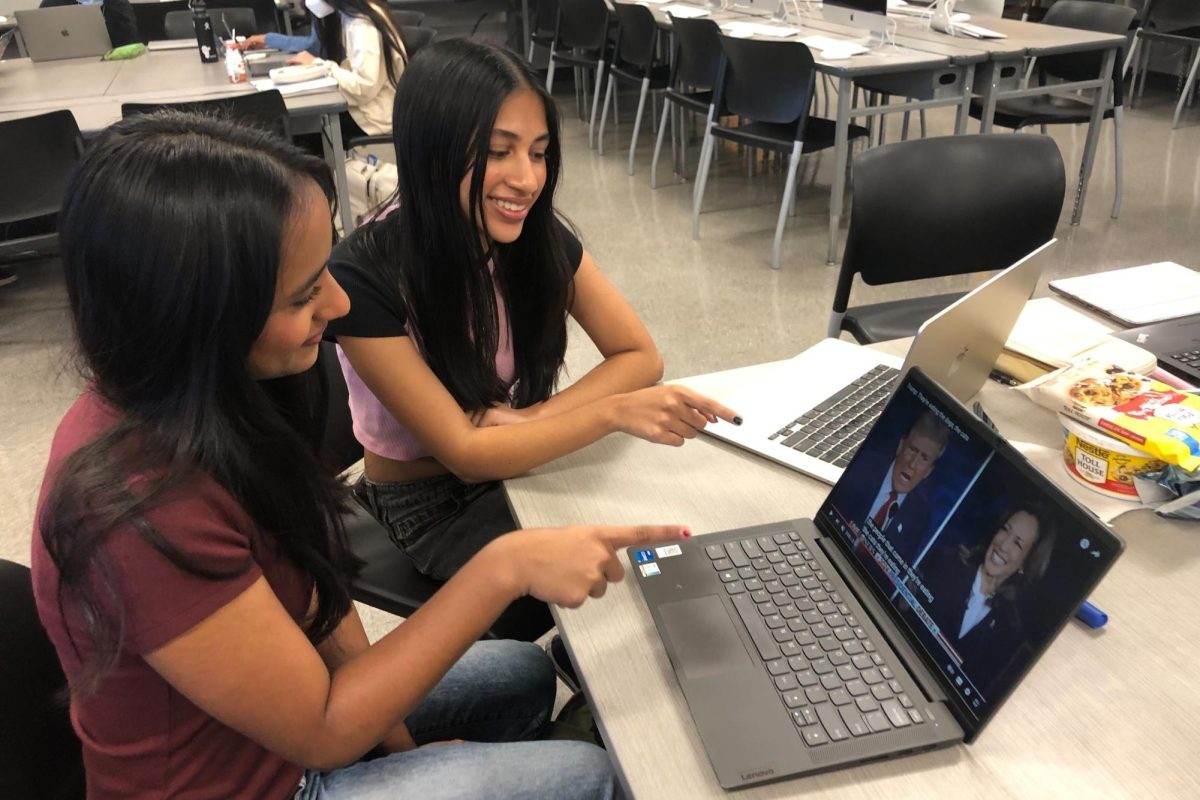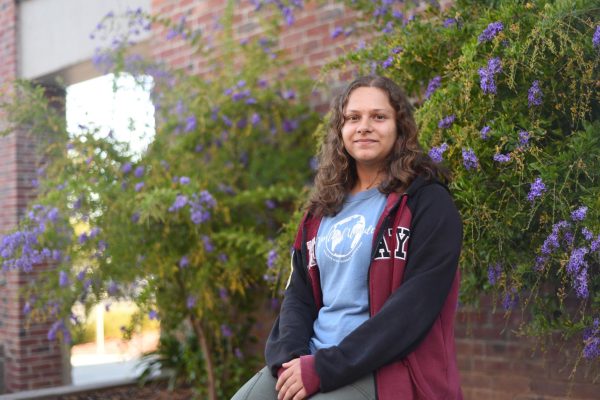“They’re eating the dogs, they’re eating the cats.”
After the second 2024 presidential debate, President-elect Donald Trump’s bizarre statement about Haitian immigrants took America by storm. In place of the expected buzz about policies after the debate, remixes of the clip circulated on TikTok. Videos such as these gained millions of views, and top comments read, “TikTok is definitely better than TV” and “We are such an unserious generation, I love it,” with barely a mention of the statement’s racist content.
The number of Americans who get their news from social media has steadily increased over the past decade, rising 5%, from 49% to 54%, between 2012 and 2024. Social media presents news on platforms already dominated by memes, pop culture and fandom culture, creating the perception that news is just another source of entertainment. This has caused Americans using social media as a news source to view serious topics like politics or crime as drama, overshadowing these issues’ very real impact on people.
The circumstances around the re-examination of the Menendez brothers’ sentence for murdering their parents demonstrates another facet of this argument. People began to call for the brothers’ release from prison following the release of a Netflix docuseries which dramatized the trauma and child abuse they experienced; the brothers themselves criticized the way the docuseries sensationalized and fabricated parts of their experience, calling it disrespectful to their trauma. No matter the justification, dramatizing significantly traumatizing events like the abuse of the Menendez brothers undermines their immorality and the consequences faced by victims.
It is also important to consider the impact of desensitization of grave topics on youth, including MVHS students and our school community as a whole. Adolescents see events like school shootings and threats being made into “dark humor” on social media, fostering a certain desensitization to such violent situations in real life. At MVHS, the callous behavior during the recent shooter threat at MVHS demonstrates this desensitization. Lives were potentially at stake, yet students cracked jokes about the perpetrator “just wanting to avoid a test,” spread stories about hearing screams and laughed at rumors about a teacher being escorted away by a SWAT team. Many students did not take the threat seriously, simply because they have encountered similar threats in the past which didn’t materialize — including the two bomb threats during the 2022-2023 school year.
While the shift in how news is being presented to Americans on social media has several negative implications, it is true that it can be more effective to deliver news in a dramatized manner in order to reach a larger audience. For example, a study conducted by the University of Pennsylvania found that more people were able to better remember political news when it was delivered in a humorous way, which is advantageous when attempting to inform the public about such a consequential event. Also, continuously being exposed to a lot of negative news coverage can diminish a person’s mental health, and when news is presented as humor or entertainment, it is more digestible and helps avoid triggering anxieties and depression.
However, regarding sensitive events like elections or murders in a flippant way is counterproductive and can impact the perception of things that end up affecting many of our lives, such as the leadership of our country or how the justice system treats perpetrators. To combat this, it is essential that people learn to process the news and entertaining content they see with caution and additional research to ensure the decisions people make about critical matters come from an informed perspective. We can do this by deliberately avoiding looking at news that is sensationalized for entertainment on social media, corroborating what we see with credible news sources, and trying to view current events from the perspective of their impact on others. After all, the same issues that impact others could easily end up affecting ourselves, and no one wants their trauma to be written off as drama.












